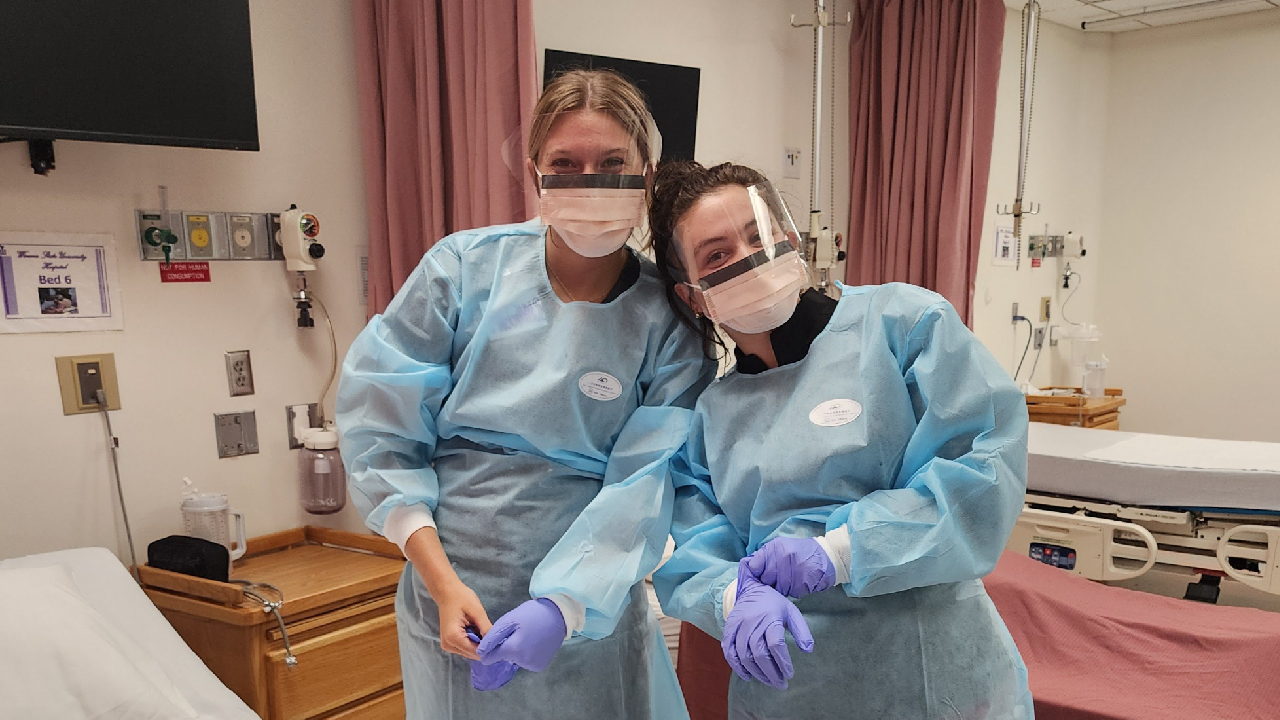
In the summer of 2024, Winona State University offered its first-ever Certified Nursing Assistant (CNA) course, developed to address an identified need in the healthcare industry.
Certified Nursing Assistants play a vital role in providing high-quality healthcare in a variety of healthcare settings, but primarily in the long-term care setting. Due to the ongoing nursing shortage, many facilities are struggling to meet patient needs. Many long-term care facilities are denying admissions, closing wings, and have concerns about completely closing their facilities due to lack of adequate qualified staff (American Health Care Association, 2024).
An aging population has increased the demand for CNAs, leading to a need for more CNA training programs, and the Winona State Department of Undergraduate Nursing has answered the call. Faculty in the department worked for over a year and a half to create and implement the university’s first CNA course, NURS 200.
“Every nurse wants to advocate and provide the best care for their patient,” said Professor Chrissy Feine. “At Winona State the student is the proverbial patient. Offering a CNA program aligns with identifying a need and taking steps to a successful outcome. These students are our future healthcare professionals. It’s an honor to be part of that growth and learning.”
The Winona State CNA program successfully completed its inaugural class in Summer 2024, providing students with the knowledge and skills necessary to pass the state’s certification exam. Passing this exam would certify them as nursing assistants and add their names to the state’s CNA registry, making them eligible to work in the State of Minnesota as a CNA.
“The most rewarding aspect of teaching CNAs is seeing their transformation from eager learners to confident individuals ready to make a difference in people’s lives,” Dr. Brit Voshage. “Their passion for helping others fuels my own passion for teaching them the skills to do just that.”
After the first CNA course ran successfully, the Minnesota Department of Health reviewed the WSU CNA program for full licensure, and in August 2024, WSU was granted a two-year license for the CNA program.
Winona State student Elizabeth Pope said the CNA course has been a “fun and rewarding” experience.
“Being in the skills lab has been especially fun because we get to learn hands-on alongside classmates and instructors, which has ultimately taught us more than any classroom or independent learning,” said Pope. “I look forward to using the skills I have learned in this class in the future as a nursing student and beyond.”
The Winona State CNA program benefits not only Nursing students, but students in other majors as well as the community at large. Many healthcare-related programs require direct-patient care hours. Any student can take the course and become a CNA. This course will be offered every semester and provides a convenient option for WSU students who previously had to seek training outside the university. A major benefit to our communities will be having more qualified CNAs working at local healthcare facilities.
Looking ahead, the Department of Undergraduate Nursing aims to expand the program to serve a broader community, including high school students and anyone interested in joining this noble caring profession. By offering accessible CNA training, WSU is making a significant contribution to improving healthcare outcomes in the region.
For more information contact Dr. Chrissy Feine at christina.feine@winona.edu.
